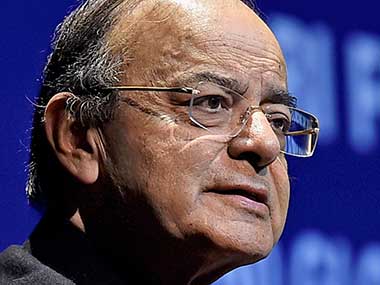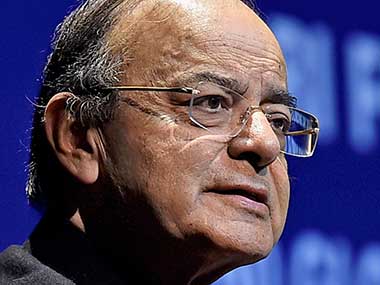With analysis of the recently released Budget pouring in this week, the one thing this government should keep in mind is to learn from the mistakes of its previous economic decisions. Particularly in the case of demonetisation, not only were the consequences of the decision disastrous, but they were exacerbated by the kneejerk and haphazard execution. The most widely touted justification for demonetisation was the eradication of black money in the economy – which largely seems to have failed. Here are three pointers that the government should keep in mind to move closer towards achieving that goal.[caption id=“attachment_4332375” align=“alignleft” width=“380”]  Finance Minister Arun Jaitley. PTI[/caption] The first way is to restructure and simplify tax policies. Because the tax laws in our country are so opaque and ambiguous, they’re fuelling a culture where Indians are choosing to set up their businesses overseas in countries like Dubai and Singapore. These countries offer very benign, transparent and efficient tax regimes with little or no tax. An ambiguous and complicated tax regime contributes to corruption and the generation of black money, abets the drain of Indian resources and makes the country uncompetitive. A significant reason that America is simplifying its tax policies is to boost its competitiveness. An important step towards eradicating black money, therefore, is to make the tax regime more efficient with clear tax slabs and unambiguous laws, beneficial for the taxpayer, the exchequer, and the economy. GST is a crucial policy for the simplification of indirect taxes, and the same fundamentals can be applied to income tax. The second is to restructure election financing. The current system is opaque and lacks any accountability, making corruption and black money very easy to proliferate. There is a dire need to introduce transparency into the system, and find a way to dampen the inflow of the hordes of unaccounted cash that enters campaign finance. One way the government can do this is to revise election limits, which are currently unrealistically low, both in terms of expenditure and how much a candidate can receive as donations during her campaign. The third way is to usher in reforms in real estate. For the last few years, income tax on earnings from real estate is charged based on the state government’s ready reckoner rates. This is a healthy economic policy, because regardless of the transaction value, the government is entitled to a certain percentage of the profits as tax, and this, in turn, dissuades individuals from transacting in cash. As a consequence, not only does this policy reduce the generation of black money, it also does away with litigation. However, there are certain anomalies in this system. There are some states, and some regions or areas within those states, where the government’s ready reckoner rates are artificially inflated or deflated, and do not reflect current market prices. In South Mumbai for instance, where commercial real estate prices are on a downward trajectory, the government’s reckoner rates continue to go up. The philosophy behind this is that a drop in real estate prices shouldn’t hamper government’s revenue from tax. However, reckoner rates higher than the actual market price tend to dissuade transactions from happening altogether because individuals are unwilling to sell and overpay tax, and this is much more detrimental for the economy and for government revenues. What the government can do to rectify this anomaly is to incentivise states to fix their reckoner rates at prices that are reflective of the market at that point. That is the only way to yield the positive benefits of the aforementioned policy. The Real Estate Regulatory Act (RERA) puts the onus on developers to complete projects in a timely and efficient manner, granting consumers the right to hold developers accountable. Developers, on their part, are happy to oblige and to deliver what has been promised. However, in order for them to honour their end of the deal, they necessarily require a way to hold bureaucrats and politicians accountable, who can often hold up their projects due to political reasons, bureaucratic red-tapism, and bribe-seeking. Developers are often forced to pay bribes – what they call “speed money” – in order to see their projects through, thereby generating black money in the economy. To hold bureaucrats accountable, states must have clear, concise and unambiguous guidelines for real estate development, and punitive measures for any officials who delay developments for illegitimate reasons. The real estate business is a massive employer in India, and when it does well, not only does construction boom, but also cement, steel, furniture, and other allied industries. RERA is, after all, a Central law, and the government at the Centre must intervene and put pressure on states to ensure that its provisions are adequately implemented. It would have served this government well to have announced realistic and permanent structural changes in the Budget that would reduce, if not entirely eliminate, the generation of black money. Unfortunately, rhetoric and post truths took precedence over hard facts. The author is a former member of Parliament and has served as minister for communication and IT, and shipping and ports.
It would have served this government well to have announced realistic and permanent structural changes in the Budget that would reduce, if not entirely eliminate, the generation of black money.
Advertisement
End of Article


)

)
)
)
)
)
)
)
)



